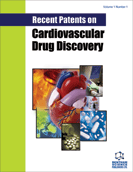Abstract
Ablation of atrial fibrillation (AF) is increasingly common. Newer techniques have been developed and indications broadened to a greater number of patients with drug-resistant AF. The first end point of ablation is to cure AF without further need for Anti Arrhythmic Drugs (AADs), but the success rate at 1 year and over, after a single procedure, though higher than the success rate of AADs alone, is not 100% yet. The aim of the present work is to understand the added value of a persistent administration of previously ineffective AADs on the long-term success rate and to evaluate the timing of AADs suspension after ablation in different types of FA, when patients are in constant sinus rhythm after several months. The reduction of symptoms and the fear of asymptomatic recurrences of AF make physicians reluctant to discontinue AADs at the end of the blanking period, though the efficacy of AADs as a permanent solution late after procedure, to increase the sinus rhythm maintenance rate, is still a matter of ongoing debate. At the time, every patient undergoing ablation of AF should be assessed individually about the need to suspend AADs or not. To do this, good knowledge of AF recurrence predictors and long term success rates of AF ablation in specific clinical settings is essential. Loop Recorder as well is very useful in guiding the administration of AADs in a patient-tailored manner. Larger registries and controlled clinical trials in well-defined clinical settings are required to further elucidate the effects of a prolonged action of AADs after AF ablation. The article presented a short discussion of recent patents related to Anti Arrhythmic Drugs.
Keywords: AF ablation, AF recurrences, long-term success rate, post-ablation AADs.
 23
23


